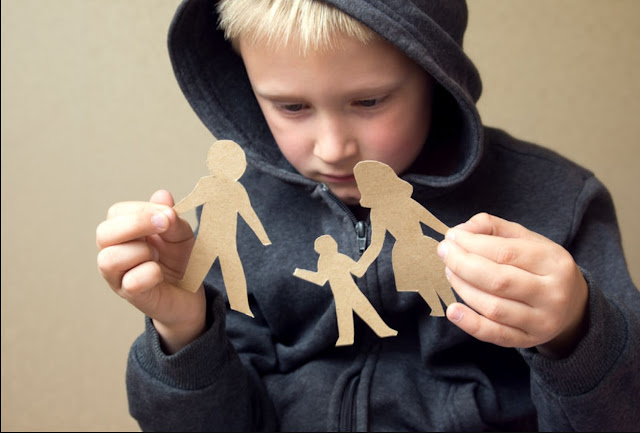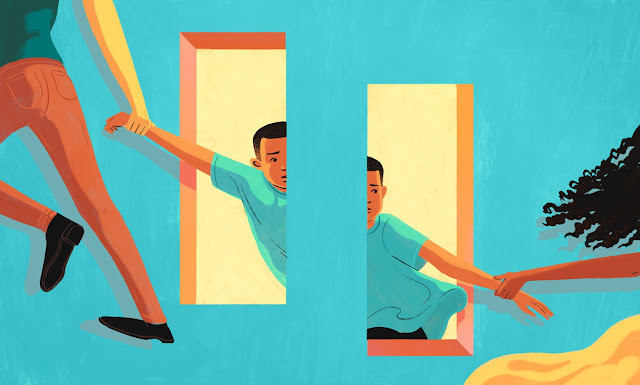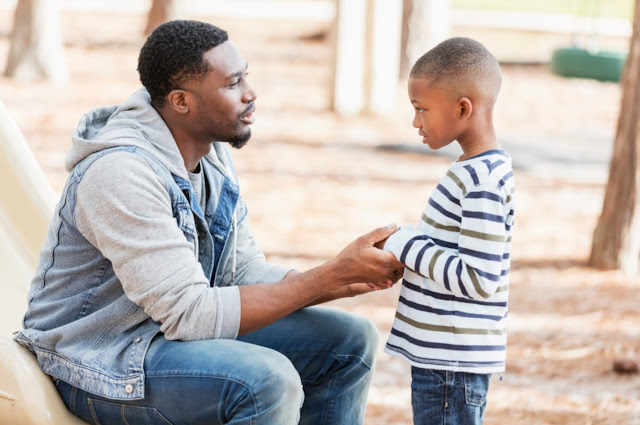Helping Children after Divorce
 |
| Helping Children after Divorce |
How a divorce affects children is one of the main concerns of parents considering or going through with a divorce. Parents often worry that they will damage their children and negatively affect their children’s functioning.
So lets take a look at how divorce affects children, and the factors that make adjustment to divorce more or less likely to happen.
How Divorce Affects Children
 |
| Helping Children after Divorce |
Some distress in children going through a divorce is normal and can be expected. Children tend to handle divorce in many different ways, and child reactions vary greatly according to a number of different factors. Researchers have looked into different risk factors for problems with child adjustment to divorce.
They have found that child factors (i.e., a child’s personality such as easy going or irritable), social factors (e.g., community support, the number of stressful life events), and family factors all relate to a child’s level of adjustment following a divorce. Of all of these factors, a parent will usually have the most control over family factors. These factors include the relationship between the parents, individual parent adjustment to divorce, and parenting practices.
For younger children, the consequences of divorce may appear in different ways. Children can have a range of responses such as symptoms of depression and anxiety. Depression can manifest through sadness, and loss of interest in things a child used to enjoy. Also, changes in sleep and food intake can be signs of depression. Among younger children, physical symptoms of distress such as stomachaches may also occur. Anxiety may be seen as an increase in clinging behavior and lack of self-confidence.
Aside from an increase in symptoms of depression and anxiety, children of divorce also tend to be more aggressive and have more behavior problems when compared to peers who come from intact families. Children from divorced parents also tend to have more difficulties with relationships in general. The findings of an increase in aggression tend to be more so for boys than for girls. As a whole, children of divorce also tend to be more vulnerable to drug, alcohol, and cigarette use compared to same age peers not from divorced families.
It is common for symptoms of distress to occur at different times through the divorce process. One of the most common things that parents see is an increase in distress across transitions between homes. It can take children time to adjust to living across both homes. A child may protest leaving each household, and be upset when adjusting to each new transition.
The adjustment typically takes longer if both parents have trouble getting along. For those parents that don’t get along, the protests that a child has about leaving each parent’s home, is often mistakenly used as grounds for the child living in one home. Even though transitions are difficult, joint physical custody arrangements are usually in the child’s best interests.
Overall, academic performance also tends to be lower among children of divorce. It is thought that the differences between children from families of divorce versus intact families come from lack of supervision (leading to less homework completion and worse school attendance), and a parent’s decreased confidence in child achievement.
One large study found that the level of family conflict was related to negative academic outcomes. Another factor that can protect academic achievement is the continued involvement of the father.
Even though there are characteristics about a child that are not controllable, and influence a child’s ability to cope with a divorce, a parent can make a positive impact on a child’s adjustment.
Increasing one on one time with a child, maintaining positive expectations for a child’s educational achievement, increasing consistency with child discipline (not necessarily increasing discipline, just following through on discipline when needed), increasing parental supervision, and not engaging in open conflict with the other parent are all behaviors that can help minimize the ways in which divorce affects children.
Helping Children Cope with Divorce
 |
| Helping Children after Divorce |
The divorce process affects children differently and depends on a number of different factors. Child reactions vary across age, gender, and personality characteristics. It is impossible to predict with certainty how a child will respond to divorce. However, we do know that parental behavior plays a very important role in helping children cope with divorce. The following three factors can assist with the coping process.
- Develop a business like attitude in dealing with the other parent
Maybe this title should read “maintain a friendship with the other parent.“ However, that is obviously not always realistic. Often times there is a lot of anger and hurt involved in a divorce. You may feel the urge to put blame squarely on the shoulders of the other parent for the divorce.
You may also feel like the last thing you want to do is speak positively about the other parent to your children. If these feelings exist, it is important to try and adopt a mindset of being in the business of raising your child. This means that all behavior should reflect that value, and should translate in supporting your child or children’s relationship with the other parent (outside of extreme circumstances like child abuse).
In a divorce involving a lot of difficult emotions, it can be next to impossible to be perfect in dealing with the other parent. Nevertheless, getting it right more often than not, can go a long way in ensuring that your child adjusts well to the divorce.
- Adjusting expectations for yourself
When one is coping with divorce, it can be difficult (if not next to impossible) to avoid feeling overwhelmed. The job that may have been shared by two is now solely your responsibility when your child is in your home. The first couple of years can be difficult with adjusting to new routines and the absence of the other parent.
To expect yourself to handle this transition “well,” and to be a model parent, can set you up for additional disappointment. The “diminished capacity to parent” is a common description for what many parents experience in the immediate aftermath of divorce. You are dealing with stress, your children are dealing with stress, and the other parent is likely dealing with stress as well. Taken together, this often times means that there is less consistent discipline, less capacity for positive interactions, and less supervision of your child.
Some parents are able to handle this transition better than others, and divorce does not always mean chaos within the household. Yet giving yourself some slack, and adjusting your expectations within the first two years can help you manage your own stress when going through a divorce.
- Be available
 |
| Helping Children after Divorce |
Even though the divorce process can seem overwhelming at times, it is important to do what you can to make yourself available to your child. Let him or her understand that they are able to speak with you about their feelings, and that they are allowed to express positive feelings for the other parent. Agreeing with your child and validating them can be two different things.
Try not to tell them how they should feel, and respond with empathy toward their situation. You may not agree with their point of view, but you can show that you understand and that you care for their opinion. There is research that suggests child adjustment following divorce can be assisted by being present and available in a nonjudgmental way for your child.
It really does seem as though time slows down when we experience the emotional pain. Try to keep in mind that you and your child will cope and endure the divorce process. Both your and your child will experience a reality much different than what you have in front of you right now.
Do what you can to focus on your time together with your child. Spending quality time during this process can be a great stress release for both adult and child. Being “present” during interactions with your child can provide some relief from difficult thoughts and emotions.
The HCAD Program
The HCAD "Helping Children after Divorce" program was developed by Dr. Stephen Mayville. Dr. Mayville is a licensed clinical psychologist with training and experience in providing behaviorally-based treatment for adults, children, and families.
The HCAD class is a multimedia Parent Education and Family Stabilization Course designed to educate users about effective strategies for parenting after divorce. The program reviews strategies focused on parent-related challenges (e.g., co-parenting and stress management), as well as parenting strategies to help reduce the effects of divorce on the well-being of your child.
The program is also a good fit for anyone in search of comprehensive parent education that addresses the unique challenges of divorce.
